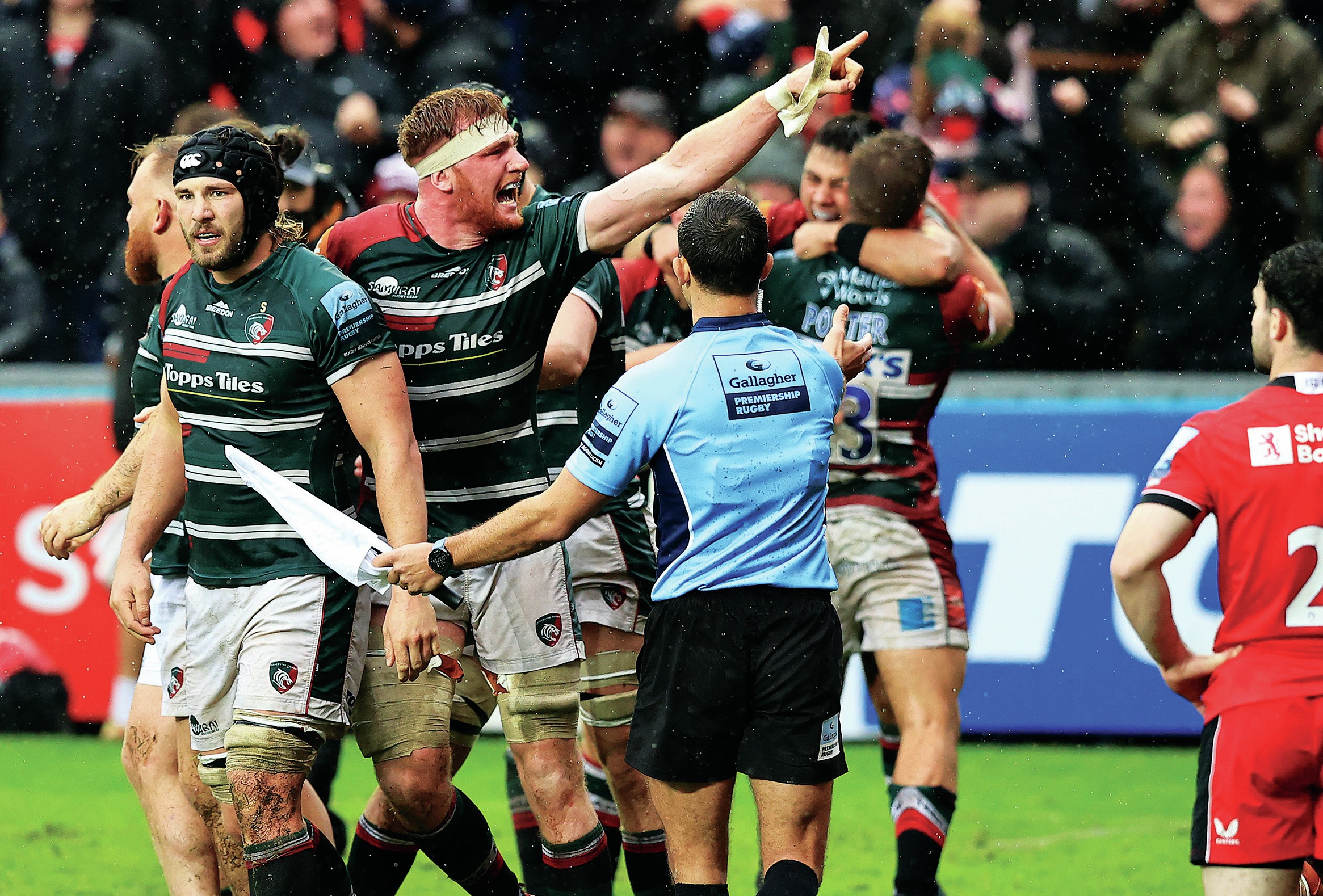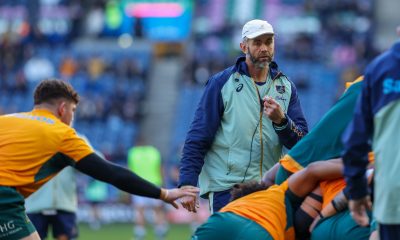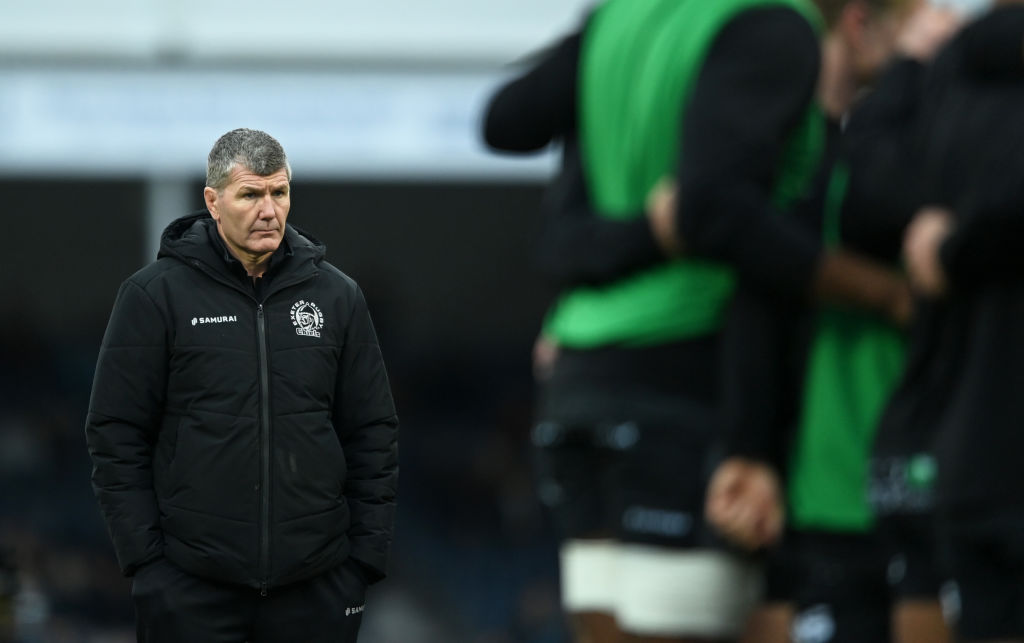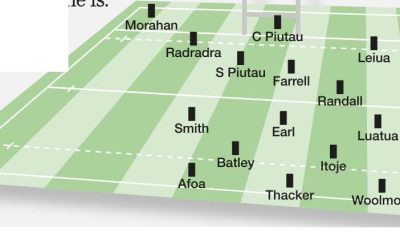
Alot is made of the advantage England enjoy over most of their rivals in terms of player numbers, commercial clout and a highly competitive professional league, but Martin Johnson embodies why they have struggled to make the most of them. The England captain who took hold of the World Cup in 2003 has been lost to the game for the last ten years, confining his contribution to punditry, which is invariably to the point, and not tempted to put on a track-suit again.
Johnson was one of the few involved in the 2011 World Cup, when he was England’s manager having taken over in the summer of 2008, the fourth appointment since that night in Sydney when England reached the top of the world rankings, to emerge from its poisonous aftermath still cloaked in his dignity. He resigned, seven months after a first Six Nations title since 2003, and has been outside the game looking in ever since.
Johnson held a series of interviews last week in his capacity as patron of the Joe Humphries Memorial Trust, a charity formed in 2013 and named after the son of a friend who died at the age of 14 in 2012 after suffering a cardiac arrest while out running. He is campaigning for sudden cardiac arrest training to be mandatory for anyone involved in sport and for defibrillators to become as common in public buildings as fire extinguishers.
“It was a horrible thing to happen to a youngster,” said Johnson. “Sadly it is not a rare occurrence. More deaths are caused by heart attacks than fire, yet fire extinguishers are required by law. Defibrillators are becoming more accessible: where I live, there is one on the side of the village hall, but the next stage is to get people to be comfortable using them and help combat a silent, hidden killer. You are 100 times more likely to need to use a defibrillator than a fire extinguisher.”
Joe Humphries died on October 4, 2012, almost one year to the day when Johnson took charge of England for the 38th and final time. They lost to France 19-12 in the World Cup quarter-final at Eden Park, the culmination of a tournament in which the players had generated more headlines for what happened off the field than on it. Less than a week after returning home, Johnson resigned ahead of a meeting of the professional game board which was to discuss his position.
He said in a parting shot that he left with a sense of unfinished business and a feeling to put things right, but a decade later he appears to be no nearer to a return to a position in the game. “I am not desperate to get back and scratch an itch,” he said. “Life moves on.” Pundits do not have to worry about rugby politics and the concern that, no matter how successful you are, you do not enjoy the ultimate control, vulnerable to the whims and foibles of others.
As England manager, Johnson reported to Rob Andrew, who was then the elite rugby director. Andrew noted in his autobiography that the “whole tenor of the (World Cup) campaign was shockingly bad and, deep down, I think it really hurt Martin. I had more overnight discussions with the RFU legal department back home than I care to remember, but it was far worse for Johnno, who saw it as his job to front up in public and was reluctant to let anyone else share the load.
“He seemed to be on his knees by the time we were knocked out of the tournament, a giant of a bloke laid low by people he thought he could trust.”
The campaign ended with England’s centre Manu Tuilagi jumping off a ferry and being arrested once he had been fished out of Auckland harbour. During the political infighting that followed, with player feedback from the World Cup leaked to a newspaper, the Minister of Sport, Hugh Robertson, wrote to the RFU telling it to get its house in order. Is it surprising that Johnson has remained detached from the game?
A vacancy at the club where he spent his entire senior career, Leicester, has cropped up a few times since 2011, but he is an infrequent visitor to Welford Road, the side he captained to domestic and European glory. They were the most successful club in England, but after 2013 started to decline, slowly at first before generating momentum and twice flirting with relegation before Steve Borthwick, who captained England under Johnson, took over in the middle of last year. “He is a very, very thorough, detailed guy,” said Johnson. “The game against Saracens (last weekend) showed how far they have come under him. They were behind for most of the match, but they kept competing and won it at the end.
The performance was there and if you stay in the battle, you give yourself a chance.
“They have a number of young lads who are doing well and can provide a solid core in the coming years. They have made a strong start to the season, three wins out of three and top of the table. It is early and the Premiership is a very close league. Even when Leicester were struggling, they were only two or three wins away from the play-off positions. Success comes through awareness and you can compete if you get it right.”
Leicester had a defined style in the Johnson era, hard and uncompromising and never letting up. He played 362 matches for the Tigers and was the captain in more than 200 of them. After Borthwick arrived, he quickly identified a major weakness: a tendency to fall away in the final quarter of matches. The Tigers’ conditioning now is such that it is a part of the game which has become a strength again, as Saracens found out.

“They have to be successful their way and not worry about what other Leicester teams did,” said Johnson. “I watched a very different Leicester side in the 1980s to the one I played in and it was successful. What every team needs is that core of players coming through: it was us, then Saracens and then Exeter. Before it was Bath. I am biased, but I think it is good for English rugby if Leicester are strong. I have not been down there for a while, notwithstanding Covid; not as often as I would like to or should do.”
England have settled down since the turbulent period after 2003 when Sir Clive Woodward was quickly followed by Andy Robinson, Brian Ashton and Johnson. Eddie Jones has been head coach since the end of 2015, but despite winning three Six Nations titles and reaching the 2019 World Cup final, he regularly faces calls for the RFU to sack him and has said he will not carry on beyond the 2023 tournament in France.
Jones wants to sign off with a repeat of what happened in 2003, to England rather than him as he was then the head coach of the beaten finalists, Australia. He last month chose a squad liberally sprinkled with newcomers, although it is being revised ahead of the Autumn International campaign.
England won the Autumn Nations Cup last year but then finished fifth in the Six Nations having been top in 2020, a fall which prompted a review of Jones’s position. “As coaches it is about picking the right balance of players, but you have to keep winning,” said Johnson. “You cannot sacrifice results for the future too much, but England are in an interesting place with a core of experience and some young guys coming through in an exciting squad.”
Johnson was interviewed on the ninth anniversary of the death of Joe Humphries, the son of his friends Steve and Angela.
“What they have done in the last ten years is incredible,” said Johnson. “They have never stopped trying to raise awareness. It is not something that anyone opposes, but it is something that it is easy to put off in a busy life. Most sports clubs are not soaked in cash, but what we are talking about is not a freak occurrence and it is not about being fit and healthy. People tend to associate a heart attack with disease or age, but sudden cardiac arrest can be down to an undiagnosed, hereditary condition and how old you are does not matter.
“Every week, 12 people under the age of 35 die of sudden cardiac arrest. If effective action is taken very quickly, their chances of surviving treble. These things can happen and you need to be prepared by learning CPR. We need more defibrillators in communities and at sports venues. Attention increases when there is a high profile case, but it needs to be constant.”
Johnson was first on the scene with his wife, Kay, when a neighbour in his village collapsed. “We did what we could,” he said. “Unfortunately, the post-mortem showed there was nothing we could have done to save him because it was heart disease, not a cardiac arrest.
“At least you know you have done everything that you can. The thought of just standing there and doing nothing in that situation is horrendous. It was horrific anyway. I’m just forever grateful that my wife and I both did the training through the Joe Humphries Memorial Trust.”
UK Coaching offers a free eLearning course on how to respond quickly and appropriately in the event of sudden cardiac arrest. The course is available at www.ukcoaching.org/sca































You must be logged in to post a comment Login